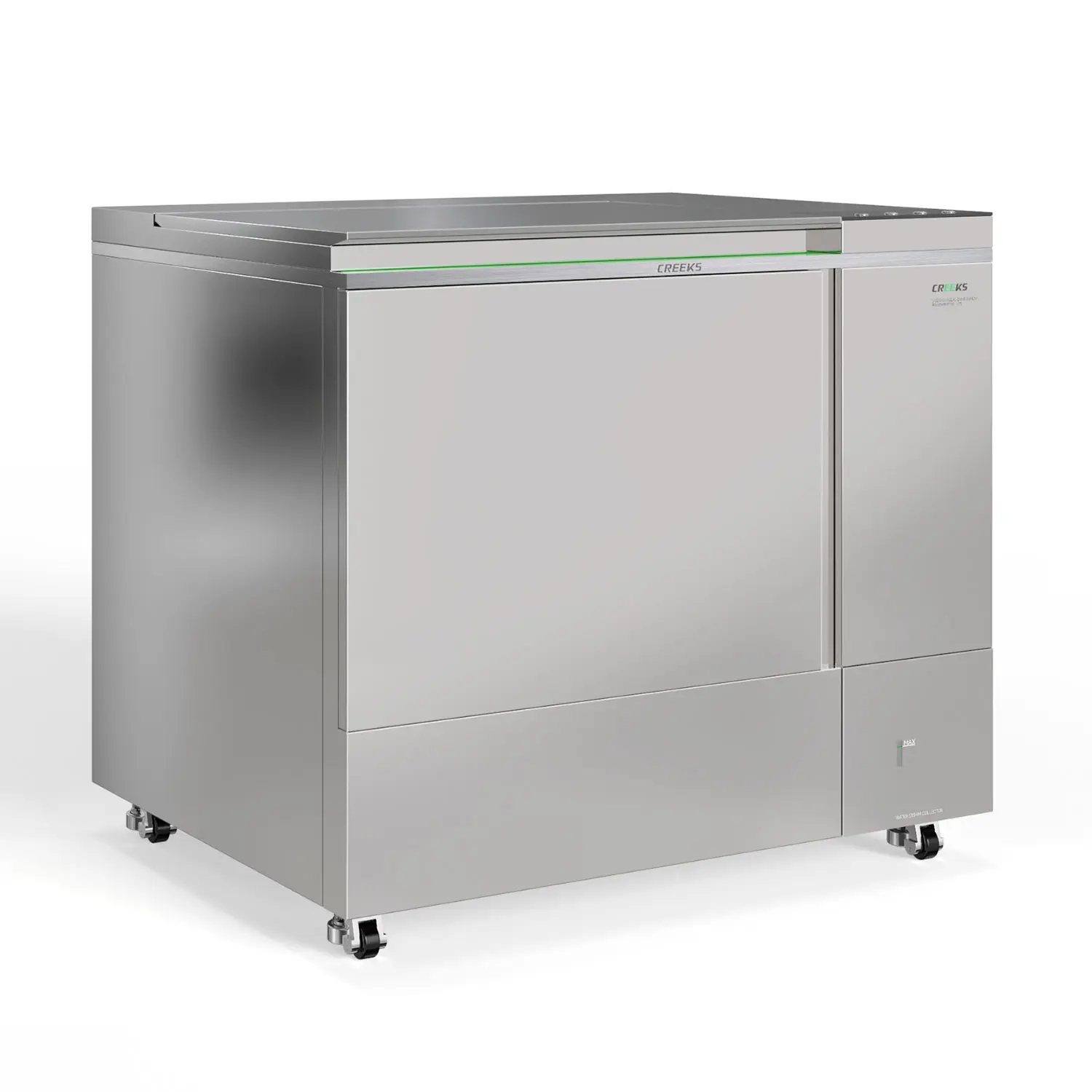Revolutionize Your Composting Experience with Creeks Stainless Steel Commercial Food Composter
In today’s eco-conscious world, composting has become essential for reducing waste and enriching soil. However, traditional composting methods often come with challenges—unpleasant odors, pests, slow decomposition, and bulky setups. Enter the Creeks Stainless Steel Composter, a sleek, durable, and efficient solution designed to transform organic waste into nutrient-rich compost effortlessly.
Whether you’re an urban gardener, a sustainability enthusiast, or simply looking for a cleaner way to manage kitchen scraps, the Creeks composter is engineered to meet your needs. In this article, we’ll explore its innovative features, benefits, and why it’s the ultimate composting solution for modern households.
The Growing Demand for Commercial Food Composters: A Sustainable Solution for Businesses
As the world continues to address climate change and environmental sustainability, businesses are increasingly seeking ways to reduce their carbon footprint. One such solution gaining popularity in various sectors, from restaurants to food production facilities, is the commercial food composter. These machines not only help businesses manage waste efficiently but also contribute to a circular economy by turning organic waste into nutrient-rich compost that can be used to improve soil health.
What is a Commercial Food Composter?
A commercial food composter is an advanced, industrial-grade machine designed to process large quantities of organic waste, particularly food scraps, into compost. Unlike traditional composting methods, which can take months and require a significant amount of manual labor, commercial food composters utilize high-tech mechanisms to accelerate the decomposition process. These machines use heat, air circulation, and moisture control to break down food waste quickly, often turning it into usable compost within a matter of days.
These machines are typically designed to handle a wide variety of food scraps, including fruit and vegetable peels, coffee grounds, meat, dairy products, and even food packaging that is compostable. They come in different sizes, ranging from small units suitable for restaurants to large-scale industrial machines for food production facilities, hotels, and catering companies.
Why Choose the Creeks Stainless Steel Composter?
1. Premium Stainless Steel Construction
Unlike plastic compost bins that degrade over time or attract pests, the Creeks composter is crafted from high-grade stainless steel, ensuring:
- Durability – Resistant to rust, corrosion, and extreme weather conditions.
- Hygiene – A non-porous surface prevents bacterial buildup and bad odors.
- Aesthetic Appeal – A sleek, modern design that blends seamlessly into any kitchen or garden.
2. Odor-Free & Pest-Resistant Design
One of the biggest complaints about composting is the smell. The Creeks composter tackles this with:
- Airtight Sealing – Prevents odors from escaping and deters flies, rodents, and other pests.
- Charcoal Filters – Absorb excess moisture and neutralize smells for indoor use.
3. Faster Composting with Advanced Aeration
Slow decomposition is a common issue in traditional compost bins. The Creeks model features:
- Dual Ventilation System – Promotes optimal airflow to speed up microbial activity.
- Tumbling Mechanism – Allows easy mixing for uniform breakdown.
- Thermal Insulation – Maintains ideal temperatures for rapid composting, even in colder climates.
4. Space-Saving & Versatile Placement
Whether you live in an apartment or a house with a backyard, the Creeks composter fits effortlessly:
- Compact Design – This is Perfect for balconies, kitchens, or small gardens.
- Indoor & Outdoor Use – Stainless steel construction ensures it remains clean and functional anywhere.
5. Easy to Use & Maintain
Composting should be hassle-free. The Creeks composter includes:
- Removable Inner Bin – This simplifies compost harvesting and cleaning.
- Ergonomic Handles – For effortless transport and tumbling (if applicable).
- Leak-Proof Base – Prevents messy drips when collecting liquid compost tea.
Considerations for Choosing a Commercial Food Composter
When selecting a commercial food composter, businesses need to consider several factors:
1. Volume of Waste: The amount of food waste your business generates will determine the size and capacity of the composter. Larger operations, such as hotels or large restaurants, may need industrial-scale machines, while smaller businesses may opt for compact units.
2. Space Requirements: Depending on the type of composter, the space required can vary significantly. In-vessel composters and anaerobic digesters may require more space than simple aerobic composters.
3. Energy Consumption: While most commercial composters are designed to be energy-efficient, it is important to assess the energy requirements of the system and ensure they align with your business’s sustainability goals.
4. Maintenance: Commercial composters require regular maintenance to ensure they continue to operate effectively. Some models are designed to be low-maintenance, while others may require more frequent servicing.
Conclusion
The adoption of commercial food composters is a significant step toward sustainable waste management. As businesses seek to meet growing consumer demand for eco-friendly practices and reduce their environmental impact, these machines offer an efficient and effective solution. Not only do they help businesses cut waste disposal costs, but they also contribute to a greener planet by reducing landfill emissions and promoting the use of natural fertilizers. With the growing emphasis on sustainability, commercial food composters are poised to become an essential tool for businesses of all sizes.
By making the switch to food composting, businesses can play a vital role in the circular economy, turning waste into a valuable resource that benefits the environment and society at large. Whether you’re a small café or a large food processing facility, there’s a commercial food composter out there that can help you reduce waste, save money, and boost your brand’s eco-friendly image.

